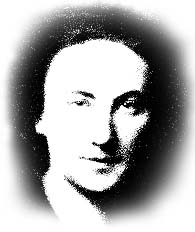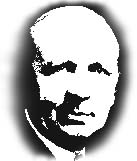

John Wettersten's work on the antecedents of Popper's ideas made a significant contribution to the history of ideas well before Malachi Hacohen stole the limelight with his intellectual biography of Popper. Wettersten's paper "Kulpe, Buhler, Popper" which is reproduced here, describes how Popper's philosophy grew out of the Wurzburg (Kulpe/Buhler) school of psychology. Buhler's contribution is well documented but Kulpe has been almost entirerly overlooked in the philosophy of science and by Popper as well. He died in 1914 at the early age of 53 with only one volume published of a four-volume project. His two closest associates also had their careers cut short, Selz was murdured by the Nazis in 1943 after taking refuge in Amsterdam and Buhler was forced to leave Austria in 1938, a move which effectively ended his major project with only one of three proposed books in print.
For a comparison, one is tempted to speculate how the ideas of the Austrian (Carl Menger) school of economics and social theory would have fared without the advocacy of Mises and Hayek through their long and active lives.
Wettersten argues that Kuple transformed both psychology and the philosophy of science by confronting three interconnected doctrines:
1. All psychological phenomena are built up from elements of sensation or
simple feeling.
2. No life force or soul can be allowed into science.
3. The philosophy of science expounded by Wundt and Mach, that science had
to establish functional relations between sensations.
All three doctrines are intimately connected and Kulpe attacked all three at once, as he had to, to develop his own non-reductionist conceptions in psychology, metaphysics and the philosophy of science.
Kulpe developed a research program in psychology and methodology, and at the same time, implicitly, in metaphysics but that was not addressed head-on, probably because he regarded it as extra-scientific and not his domain of expertise. Furthermore, metaphysics was out of vogue in the empiricist philosophy of science, and soon to become even more disparaged by Logical Positivism which was about to appear under the influence of Mach, Russell and Wittgenstein.
The most obvious feature of his psychological program was the use of introspection, not in itself an innovation but an approach that the Wurzburg School refined. This led him to research on arousal and interst (what would later be called the "set" of the subject, which needs to be taken into account along with the "setting" and "stimulis").
When Buhler inherited Kulpe's unfinished project it was suffering from internal tension between the conjectural nature of general theories (which cannot be simply built up from accumulated observations) and the desire for firm empirical foundations (in order to qualify as a proper science). In short, the problems of induction and demarcation which happened to be exercising Carl Menger at the same time, indeed for the last decades of his life (1840-1921).
Of coure it was not Buhler who articulated the solution to those problems but that did not stop him from pressing on with his research. His first major work was well advanced when Kulpe died. It distinguished three aspects of psychological activity: instinct, training and intellect. These three develop separately and are not reducible one to another.
Buhler's book on the crisis in psychology (circa 1929) attempted to overcome the disunity in methods in psychology by recognising the results of different methods and seeking for ways to combine or unify them. According to Wettersten,
This could be accomplished, he thought, if the various schools should be deemed to be engaged in the study of various aspects of psychology. The study of these aspects could then be combined in one scientific psychology.
Ths can be compared with Carl Menger's work in economics where he attempted
to find a way to reconcile the methods of different schools, especially the historical school and the classical school, an attempt at reconcilliation that was scorned by the leadership of the historical school.
Buhler modified his previous threefold scheme to distinguish between (1) experience, (2) behavior and (3) cognitive psychology. For Buhler, as for Kulpe, non-reductionism was the major heretical doctrine which demarcated his work from other schools at the time. This was especially apparent in his theory of language.
Popper's most important early work was conducted in Buhler's seminar and in the framework of thought that he had inherited from Kulpe. Wettersten has described the beginning of this work in the paper that is reproduced here and more of the story is told in another article and in a book written jointly with Berkson.
Introduction to Wettersten's paper
Rafe Champion
Biographical
Overview
Links
Buhler was born near Heidleberg into a poor family and and the intervention of the parish priest was required to ensure that he went on to high school. At first he planned to study theology, then his interest shifted to mathematics and eventually he graduated from Frieburg with a doctorate in medicine in 1903. The topic was of his dissertation was colour perception.
He next graduated from Strasbourg in philosophy and worked in the Institute for Psychology until he moved to Wurzburg n 1905 to work with Kulpe on complicated thought processes. In 1909 they both moved to Bonn. By that time three of the pillars of his intellectual interests were clearly established - language, developmental psychology and Gestalt theory.
During the war Buhler worked as a surgeon on the western front until Kulpe died unexpectedly at the age of 53. Called back to Munich, Buhler took over the supervision of a young student who had come from Berlin to work with Kulpe. Her name was Charlotte Malachowski and after a short courtship, they married in April 1916. They had two children, a son and a daugher, both of whom became successful professionals.
Buhler's first professorship was at the Technical University of Dresden, then in 1921 they moved to a chair of philosophy at Vienna, on the understanding that this would bring strengths in psychology and experimental studies in education to the position. The university did not have a psychological laboratory and to overcome this the Buhlers occupied some rooms in the office of Otto Glockel, the Viennese school supervisor and education reformer. This became the Vienna Institute of Psychology. In return, Buhler conducted extremely popular courses for elementary schoolteachers.
The Institute gained worldwide renown due to sixteen years of immensely fruitful work guided by the Buhlers, aided by a ten-year Rockefeller grant. Both Karl and Charlotte Buhler pursued important and fundamental studies with many colleagues and students, including some visitors from overseas such as the American Tolman. Their work included major scholarly landmarks such as Charlotte Buhler's book "From Birth to Maturity: An Outline of the Psychological Development of the Child" which was published in English in 1935. As an indicator of the amount of research in progress, during that time Buhler supervised some 130 dissertations with each of two colleagues in psychology and 40 with the philosopher Moritz Schlick (one of these students was Karl Popper).
Buhler spent a year in the US during 1927-8 as a visiting professor at Stanford, John Hopkins, Harvard and Chicago. He was offered a post at Harvard which he declined. As the political strains of the 1930s intensified the Institute suffered and the Rockefeller funds diminished after the first ten-year period of the grant. The final catastrophe came in 1938 when the Germans occupied Austria and Karl was kept in "protective custody" for six weeks (no good reason has been found). Upon release he put his library and papers into storage, hoping to have then sent on, then he walked over the border with a backpack of possessions to start a new life in the US. This venture did not work out because the best positions were already taken by that time and his research program was out of step with the behaviorist spirt of the times.
He and Charlotte moved from one minor appointment to another until they came to rest in California. Charlotte became a pillar of the 'third force' or 'humanistic psychlogy' and she also established a thriving psychotherapy practice in Hollywood where it appears that Karl did much of the "back room" analysis and case records.
Karl died in 1963 at the age of 84. Charlotte moved to Europe to be near her son, and died in 1974.
.
This site has special reference to her role in the rise of Humanistic or Third Force psychology in the United States.
A paper by Rafe Champion on language and abstract ideas with special reference to the nature of the literary text. The paper shows how Popper elaborated on Buhler's theory of language and the way that Popper's theory of abstract ideas is very similar to the theory of the literary text expounded by Wellek and Warren.
Whatever Happened to Karl Buhler? NO LONGER AT THIS LINK
Brock, A. C.; (1994) 'Whatever happened to Karl Bühler?'. CANADIAN PSYCHOLOGY, 35 :319-329.
An article by Adrian Brock on the scandalous neglect of Buhler's achievements, a tragic tale of being out of step with the times, in the wrong place at the wrong time, and written out of history.
Buhler's Program in Psychology and Language Studies
Essay
John Wettersten has done a great deal of work on the antecedents of Popper's thought in the school of Kulpe and Buhler.
Charlotte Malachowski.
Karl Buhler
